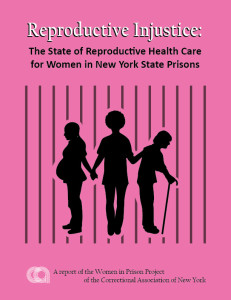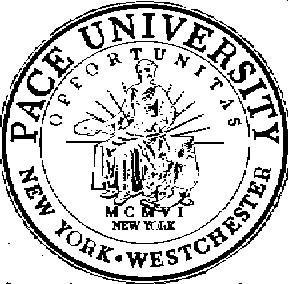POST WRITTEN BY: Maureen F. Schnepf (’17), Pace Law School
On Tuesday February 3, 2015, some of my classmates and I attended The Newburgh Sting event – an event our professors had encouraged us to attend, assuring us it would be a great time. I had never heard of this case prior to the event and was interested in finding out whether this was “a classic case of entrapment.” As an American, I have always had faith in our criminal justice system. However, on Tuesday, that faith was somewhat shaken. Fortunately, there were many other valuable takeaways making up for it.
The film portrays the story of four poor black men, James Cromitie, David Williams, Onta Williams and Laguerre Payan, who, as the movie portrays it, were all entrapped by an FBI undercover informant, Shahed Hussein. The FBI agency is tasked with the responsibility to combat terrorism, especially in the post 9/11 world. But at what cost do we as Americans support this goal? In order to turn these men into terrorists, Shahed Hussein approached James Cromitie, a low level marijuana dealer who worked at Walmart, to recruit him to bomb synagogues in Riverdale, NY and a military base near Newburgh, NY. Hussein kept pushing Cromitie to find more “brothers” to come along. Hussein needed involvement of more than one person for a conspiracy charge to stand since Hussein was a government agent. Even after Mr. Cromitie temporarily disappeared, he was nevertheless pulled back in by the false sense of security that Hussein promised. Mr. Cromitie convinced three other men to help: one needed money to pay for his brother’s medical bills that had resulted from a surgery removing a tumor; another one was enticed by the promise of sustenance and financial stability which he so needed for his family; and the last one hoped this to be his ticket out of poverty-stricken Newburgh. All four men had exactly one thing in common – they all needed money. Hussein skillfully lured all four men, taking advantage of their low intelligence while promising financial security.
When the plot was being formulated (in Hussein’s living room with hidden cameras), Hussein was the one giving instructions. It was Hussein who suggested using two bombs in a backpack and a stinger missile. Coincidentally, the use of a stinger missile triggers a mandatory 25 year sentence in prison. It was Hussein who continuously reminded the men that this was a jihad – a holy war for Allah. Mr. Cromitie and David Williams demanded reassurance from Hussein that they were only targeting property and that no one would get hurt. Hussein kept inciting the men to believe that this mission was for Allah; however, Mr. Cromitie always responded that “[t]hey can use the money.”
On the night of the attack, the whole group drove to Connecticut to pick up the – unbeknownst to the participants – fake bombs and the stinger missile. Interestingly enough, crossing state lines triggered federal jurisdiction. When the men returned to New York to switch the cars, they were apprehended by the police and FBI agents. The scene was flooded with an excessive number of police officers who claimed to be thwarting four “terrorists” – who they knew had two fake bombs that would never detonate. To top it all off, the FBI made public statements about this thwarted attack, stating that the FBI had been watching these four Muslim men who had allegedly met in prison for over a year. However, the men did not meet in prison; nor did I get the feeling from the video that they were devout Muslims because only one Quran was discovered when their homes were searched. The FBI put on a great show for the public. The four men pleaded not guilty but were convicted and sentenced to 25 years in prison. They lost their appeal, and their last resort, the U.S. Supreme Court, denied their writ of certiorari.
On one hand I can see how they were convicted since they followed through on the plan of committing a terrorist attack on innocent people. However, can we call this “justice”? The defendants were convicted for a crime they would have never had the ability to pull off had it not been for the government planting this idea in their minds. The defense attorneys who spoke at Pace on Tuesday shared that the trial judge, Judge McMahon, in her opinion, appeared to be setting these four men up for a successful appeal, even after the jury found the entrapment defense baseless and convicted them. That boggled my mind. In her 54 page opinion, the judge opines as if she is to find the defendants not guilty but in the last two pages she found the four defendants guilty, even Payan who clearly exhibited diminished mental capacity.
This entire situation was very sad to learn about. The families of these men who will forever be labeled as terrorists will not see them for 25 years. I can’t help but ask: would they have ever done this without the FBI? I don’t think so.
And so, what’s the lesson? Ms. Susanne Brody, Onta Williams’ defense attorney, shared that integrity is key – one must remain grounded in what is right and what is wrong – that is the key to being an attorney. Don’t just blindly follow, and stand up for what you believe is right. Another valuable lesson was to learn about the amount of time and effort invested into this case. Sam Bravermen, defense counsel for Mr. Payan, shared that his team spent close to 10,000 hours working on this case in just a few months, demonstrating the diligence, commitment, hard work, and team cooperation needed to take on a case such was this.
If there was one truth throughout the film that stuck with me the most, it was that fear is among the most potent motivators. It motivated a jury to convict these men. It motivated the FBI to plan and incite this entire “attack” in the name of security, and it appears to motivate all of us today. But perhaps we should be more fearful about the fact that our system isn’t always working as intended. Having integrity and thus ensuring the integrity of the system we are all going to very soon be a part of, perhaps, should be our focus. Whether working as a defense attorney, a prosecutor, or for the FBI, we all should try our best to act with candor, do the right thing, and remember why we came to law school in the first place.
I urge all of you to watch this film. It speaks for itself. You may be surprised at how you feel once the credits begin to roll.
 Pace Law School and the Pace Criminal Justice Society present Clarence Darrow starring Professor Bennett Gershman. Please join us for this once in a lifetime event and note that there will be only two performances! Suggested donation is $15 and all proceeds will benefit the Equal Justice Initiative. Don’t miss it and come and join us!
Pace Law School and the Pace Criminal Justice Society present Clarence Darrow starring Professor Bennett Gershman. Please join us for this once in a lifetime event and note that there will be only two performances! Suggested donation is $15 and all proceeds will benefit the Equal Justice Initiative. Don’t miss it and come and join us!

